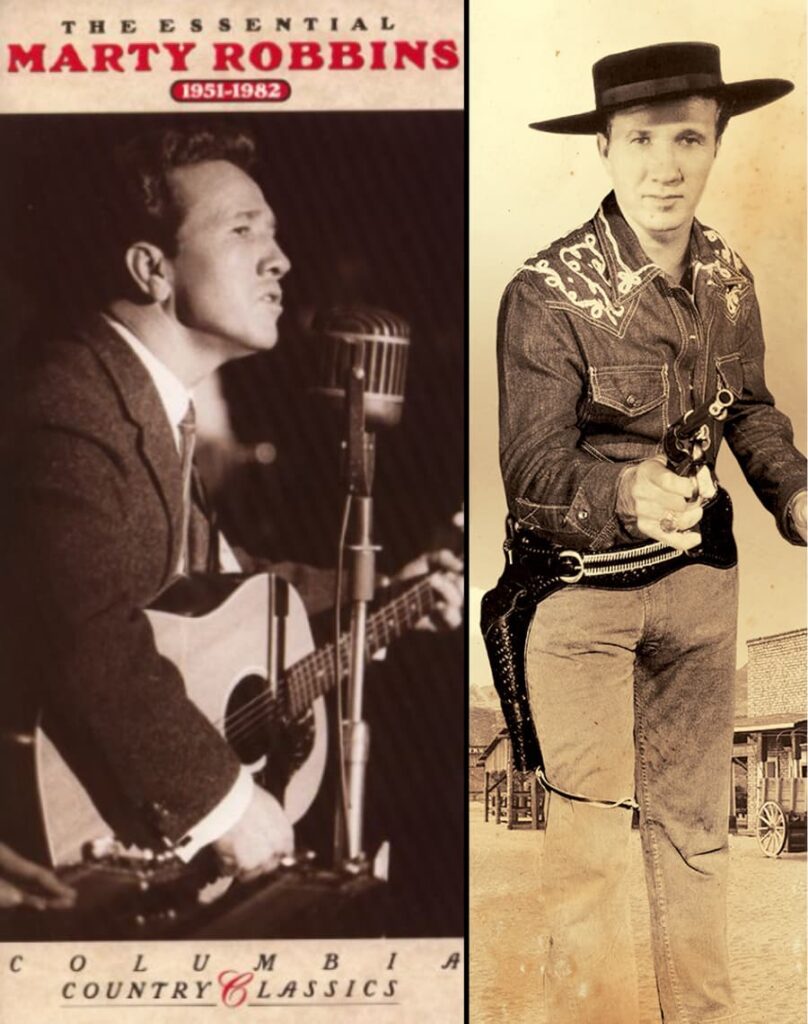
A Timeless Ballad of Unrequited Love and Lost Dreams
Ah, the 1960s. A time of change, of societal shifts and musical revolutions. Amidst the British Invasion and the burgeoning folk-rock scene, there was a steady, resonant voice that continued to tell tales of the American West. That voice belonged to the legendary Marty Robbins. A masterful storyteller and a true country music icon, Robbins had an uncanny ability to capture the human condition in his songs. While many of his hits, like the epic “El Paso,” painted vivid pictures of cowboys and gunfights, others delved into the quieter, more intimate landscapes of the heart. One such song, a gem from his prolific catalog, is the poignant ballad, “Ain’t I Right.”
Released in 1966 as a single, this song didn’t scale the same commercial heights as some of his bigger hits. It made a respectable, though modest, showing on the country charts, peaking at number 13 on the Billboard Hot Country Singles chart. But its true measure of success isn’t found in its chart position. It’s in the way it resonates with anyone who has ever felt the sting of unrequited love, the bitter taste of a relationship that was never truly theirs. The song appeared on his 1967 album, The Drifter, a collection that showcased Robbins’ versatility and his gift for conveying a wide range of emotions.
The story behind “Ain’t I Right” is a simple one, yet it’s as old as time itself. It’s the tale of a man who is deeply in love with a woman who is already with someone else. He’s not a bitter antagonist; he’s a lonely observer, a man on the outside looking in. He sees the cracks in her current relationship, the moments of unhappiness and the signs that she is not truly fulfilled. He offers himself as an alternative, not in a malicious way, but with a quiet, heartbreaking certainty. The question he keeps asking throughout the song—“Ain’t I right?”—is a plea for her to see what he sees, to acknowledge the truth that they both know in their hearts.
What makes this song so powerful is its raw, unadorned honesty. The lyrics, written by Robbins himself, are a masterclass in subtlety and emotional depth. He doesn’t resort to grand declarations or over-the-top dramatics. Instead, he uses simple, relatable imagery to paint a picture of longing and sorrow. The line, “I see the sad expression when he calls you on the phone,” is a quiet gut-punch, a moment that captures the essence of his pain and his keen perception. The melody, a gentle, lilting country waltz, provides the perfect backdrop for Robbins’ smooth, melancholic vocals. It’s the kind of song you put on when you’re alone with your thoughts, a soundtrack to a late-night drive or a quiet evening of reflection.
For those of us who grew up with Marty Robbins‘ music, “Ain’t I Right” holds a special place. It’s more than just a song; it’s a memory. It evokes a simpler time, when a good country song could tell a complete story in just a few minutes. It reminds us of first loves, of the heartbreak that inevitably comes with them, and of the quiet hope that even in the midst of sorrow, there might be a chance for a different kind of happiness. It’s a song that speaks to the soul, a timeless reminder that some emotions never truly go out of style. The song is a testament to the fact that even a modest chart position can’t diminish the power of a truly great piece of music.